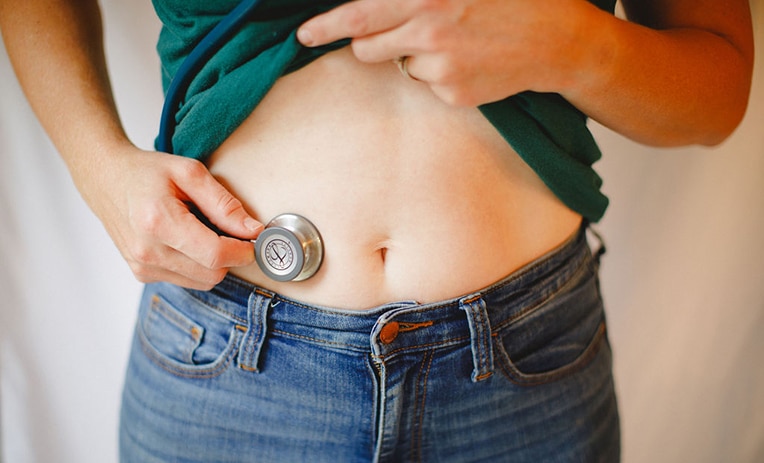
How Toxins Affect Your Hormones and Fertility
Hormones are critical for your reproductive health and function. But endocrine-disrupting chemicals (EDCs) are present in nearly everything – the foods we eat, the water we drink, the clothes we wear, even in the air we breathe. Because they are structurally or functionally similar to estrogens, they can bind to estrogen receptors in your body. This “tricks” the body into thinking more estrogens are being produced than what is necessary. As a result, your body may either shut down its own production of certain hormones or ramp it up.1 Either way, EDCs wreak havoc on your reproductive health. Common toxins that affect your hormones and fertility include (but are not limited to):- Heavy metals: Heavy metals can be found in various sources, such as seafood, agricultural pesticides, waste water, gasoline pollution, dental amalgams, and even some cosmetics.2 These aren’t just bad for the environment, they’re bad for your reproductive health, too. Most heavy metals, such as lead, cadmium, and mercury, are poisonous to humans even at very low doses.3 Recent studies also show that they can interact with various hormone receptors, including thyroid hormone receptors and estrogen receptors. Because these chemicals interfere with natural hormone generation and activities, hormone homeostasis cannot be achieved.4
- Herbicides and pesticides: Like heavy metals, some herbicides and pesticides can interfere with female hormonal function, which can lead to disruption of the reproductive system and hormonal balance.5 Examples of common culprits include Roundup, flea and tick medications for pets, rodent poisons, and mosquito repellents.
- Alcohol: The effect of alcohol on fertility hasn’t been clearly established. Some studies have found a link between alcohol consumption and significant declines in fertility. Even low levels of alcohol consumption (fewer than 5 drinks a week) can have a negative impact on your fertility.6
- Smoking: Women who smoke have higher levels of circulating testosterone and lower levels of free estradiol than those who don’t.7 Some studies also suggest a link between smoking and an increased risk of polycystic ovarian syndrome (PCOS) and infertility.8,9 Smoking can also increase your risk of miscarriage.
- Caffeine: Bad news for coffee lovers. Studies show that high levels of caffeine consumption (>5 cups of coffee per day) have been associated with decreased fertility.10
- Xenoestrogens: Xenoestrogens are another type of EDC and can be found in food, cosmetics, water, plastics, personal care products, pesticides, medications, and more.11 Because they can bind to estrogen receptors, xenoestrogens like bisphenol A (BPA) and phthalates are notorious for causing hormonal disruption and fertility problems. For a more in-depth discussion on xenoestrogens, check out my article How Xenoestrogens Affect Your Hormones and How You Can Fight Back.
How to Detox to Optimize Hormones and Fertility
So, how do you detox your body of endocrine disruptors? Complete avoidance of toxins, including endocrine disruptors, is unrealistic. My goal is to raise your awareness of potential toxins around you, so you can make healthier lifestyle adjustments. Here are my top recommendations on what you can do to detox and reduce your exposure to toxins as much as possible.1. Choose Organic Animal Products
I recommend choosing organic products whenever possible. Organic animal products come from animals raised without synthetic chemicals and generally higher welfare standards. According to the Organic Center, a nonprofit research and education organization, organic meat has the following advantages:12- More healthful fat
- More antioxidants
- Reduced exposure to pesticides
- No antibiotics
- No synthetic growth promoters
2. Buy Organic Produce When You Can
Every year, the Environmental Working Group (EWG) analyzes federal data of over 46,000 samples of 46 fruits and vegetables tested for pesticides. The EWG then ranks the 12 fruits and vegetables that have the most contamination in a list called the “Dirty Dozen.” In a nutshell, the Dirty Dozen fruits and vegetables are ones you may want to consider buying organic whenever possible. Buying organic versions of these products can help reduce your toxin exposure. If you can’t find or afford organic produce all the time, no worries. The EWG also publishes a counterpart to the Dirty Dozen list called the “Clean 15.” The conventionally grown fruits and veggies included in this list tend to have the least amount of pesticide residue. While the Dirty Dozen and Clean 15 are both certainly helpful, the most important takeaway is that you should include adequate amounts of fruits and veggies in your diet, even if they’re not organic. Use these lists just as guides on which produce you should prioritize buying organic when and if you can. Another tip is to buy organic produce frozen, which is generally more affordable and lasts much longer than fresh.3. Use Clean Beauty and Personal Care Products
Beauty and personal care products are significant sources of chemicals, some of which are associated with an array of negative health effects, such as disruption of the reproductive system. Studies show that women who use perfume or wear makeup frequently had high urine concentrations of toxins that scientists call “chemicals of concern.” For example, in one study, women who reported using perfume had nearly 3 times the concentration of monoethyl phthalate (MEP) in their urine compared to those who didn’t.13 Like other phthalates, MEP exposure has been linked to infertility, polycystic ovarian syndrome, metabolic abnormalities, certain cancers, and more.14 For clean beauty and personal care products, I recommend BeautyCounter.4. Take Shoes Off in Your Home
For many people, taking shoes off at the door is probably the last thing on their minds when they get home. But scientists warn that your shoes could be a major source of toxins in your home. Studies have found infectious microorganisms (including drug-resistant ones), herbicides like glyphosate, cancer-causing asphalt road residue, microplastics, and more.15,16,17,18 Leave the outdoors where it belongs. Take your shoes off at the door. It’s a really simple solution with a potentially big impact on your health.5. Avoid Alcohol and Cigarettes
It shouldn’t come as a surprise that both alcohol and cigarettes have negative effects on your hormones and fertility. Studies show that smoking or drinking alcohol during pregnancy also increase chances of birth defects, neurodevelopmental disorders, underdeveloped lungs, and even sudden infant death syndrome.19,20 Don’t take the chance. If you want to improve your hormonal balance and fertility, avoid alcohol and cigarettes.6. Prioritize Daily Bowel Movements
Waste products in your body are mainly removed through urine and feces. But even more importantly for humans, excess hormones (like estrogen) are also removed through bowel movements. When excess estrogen isn’t metabolized efficiently, it gets reabsorbed by your body, potentially disrupting hormonal balance. One study found that the risk of breast cancer was 46% lower in women with frequent (≥3 per day) bowel movements than in women who went less frequently.21 If you’re not having daily bowel movements, I recommend working on your diet and gut health with an experienced healthcare provider.7. Support Your Liver
Your liver plays a central role in flushing out toxins from your body. Because we’re faced with so many toxins in our lives, I recommend supporting your liver through supplements like the following:- Milk thistle
- Dandelion root powder
- Turmeric
- Chicory extract
- Artichoke extract
- Burdock root extract
- Beet root
8. Sweat It Out
Sweating is one of the best ways to remove toxins from your body. For example, one study found that BPA concentrations in sweat were consistently higher than those in urine. In fact, researchers were able to detect BPA in sweat from individuals who excreted little to no BPA in their urine.22 Sweating may also help reduce heavy metals in your body, such as arsenic, cadmium, lead, and mercury.23 In other words, find ways to sweat, whether it’s through exercising or going to a sauna.9. Buy High-Quality Air and Water Filters
Since most of us spend the majority of our lives indoors, it’s critical to decrease indoor air pollution as much as possible. At a minimum, get an air purifier that has HEPA filters and carbon filters to help capture tiny particles and volatile organic compounds. An air purifier that has an ultraviolet-C light and/or photocatalytic oxidation technology can break down the pollutants collected by the filters.24 Don’t forget your drinking water! Tap water is polluted with an unimaginable number of contaminants, just a few of which include bacteria, viruses, heavy metals, disinfection byproducts (ex: chloroform), pesticides, and fracking fluids.25 While water filter pitchers are the most commonly used (and the most budget friendly), a reverse osmosis water filter does the best job of removing contaminants.26Watch Out for Greenwashing
It’s never been more profitable to go “green.” Big corporations understand that many Americans value environmental sustainability and that they’ll often pay more for products they believe are environmentally friendly. And so, corporations promote their products as eco-friendly, biodegradable, nontoxic, recyclable, plastic-free, zero waste – without necessarily making it clear what these terms actually mean. But it doesn’t mean that companies have changed the formulas in their products or their sourcing. It’s also difficult to verify their environmental claims. This act, called “greenwashing,” allows companies to profit off well-intentioned consumers while continuing, or even expanding, their environmentally harmful behaviors. Here are some examples of how greenwashing might show up in your daily life:- Environmental buzzwords like “eco-friendly,” “organic,” and “natural”: The language is intentionally vague and has no legal weight.
- Green imagery: Environmental visuals like trees, wild animals, leaves, and solar panels can imply sustainability even though the company actually does nothing to protect the environment.
- Lesser of two evils: A marketing ploy to make you feel better about a brand, commodity, or industry that is best avoided. An example of this is the palm oil industry.
- Eco-ratings or scorecards: These are greenwashing schemes that don’t mean anything without strict third-party accountability.
- Carbon neutral, zero emissions, net-zero, or carbon offset: There is a lack of oversight and standardization for measuring carbon saved.
- B Corp Certification
- EWG verified
- Forest Stewardship Council (FSC)
- Non-GMO Project
- Made Safe Certification
- Electronic Product Environmental Assessment
- Energy Star Program
- WaterSense
- SCS Recycled Content Certification
- Rainforest Alliance
- Global Organic Textile Standard (GOTS)
Prepare Your Body for Pregnancy Naturally With a Women’s Hormone Specialist in Boston
Toxins are ubiquitous and affect our hormones, sometimes leading to infertility. You might even know or feel that you need a detox before trying to get pregnant, but where do you begin? And how do you make sure you detox safely? As a women’s hormone specialist, I’ve worked with hundreds of women to optimize their hormone levels and prepare their bodies for pregnancy. I’ve seen the critical need for a natural approach to pregnancy and women’s overall health. That’s why I created my Healthy Preconception Plan, a program designed for women interested in a holistic approach to fertility and pregnancy. Join me as I cover how to detox and nourish your body and address any emotional or mental challenges you may have regarding your well-being. I also offer 15-minute complimentary consultations to women all across the world. I look forward to hearing from you soon.References:
- https://www.epa.gov/endocrine-disruption/overview-endocrine-disruption
- https://www.ncbi.nlm.nih.gov/pmc/articles/PMC8511997/
- https://pubmed.ncbi.nlm.nih.gov/34994948/
- https://www.ncbi.nlm.nih.gov/pmc/articles/PMC10147072/
- https://www.ncbi.nlm.nih.gov/pmc/articles/PMC1524969/
- https://pubmed.ncbi.nlm.nih.gov/9712595/
- https://www.ncbi.nlm.nih.gov/pmc/articles/PMC2707474/
- https://www.dovepress.com/genetically-predicted-cigarette-smoking-in-relation-to-risk-of-polycys-peer-reviewed-fulltext-article-CLEP
- https://www.asrm.org/practice-guidance/practice-committee-documents/optimizing-natural-fertility-a-committee-opinion-2021/
- https://www.asrm.org/practice-guidance/practice-committee-documents/optimizing-natural-fertility-a-committee-opinion-2021/
- https://www.ncbi.nlm.nih.gov/pmc/articles/PMC6104637/
- https://organic-center.org/site/benefits-organic-meat
- https://www.nature.com/articles/jes2012105
- https://jamanetwork.com/journals/jamanetworkopen/fullarticle/2796644
- https://www.cambridge.org/core/journals/epidemiology-and-infection/article/mechanisms-for-floor-surfaces-or-environmental-ground-contamination-to-cause-human-infection-a-systematic-review/37BF6318BD1473C4918A23C843B25D05
- https://www.tandfonline.com/doi/full/10.1080/10408444.2018.1528208
- https://www.tandfonline.com/doi/full/10.1080/23273747.2016.1148803
- https://www.sciencedirect.com/science/article/abs/pii/S0269749121006461?via%3Dihub
- https://www.fda.gov/tobacco-products/health-effects-tobacco-use/how-smoking-affects-reproductive-health#References
- https://www.ncbi.nlm.nih.gov/pmc/articles/PMC5504800/
- https://www.ncbi.nlm.nih.gov/pmc/articles/PMC2848455/
- https://pubmed.ncbi.nlm.nih.gov/22253637/
- https://pubmed.ncbi.nlm.nih.gov/22505948/
- https://www.epa.gov/sites/default/files/2014-07/documents/aircleaners.pdf
- https://www.epa.gov/sites/default/files/2015-10/documents/ace3_drinking_water.pdf
- https://nicholas.duke.edu/news/not-all-home-drinking-water-filters-completely-remove-toxic-pfas




